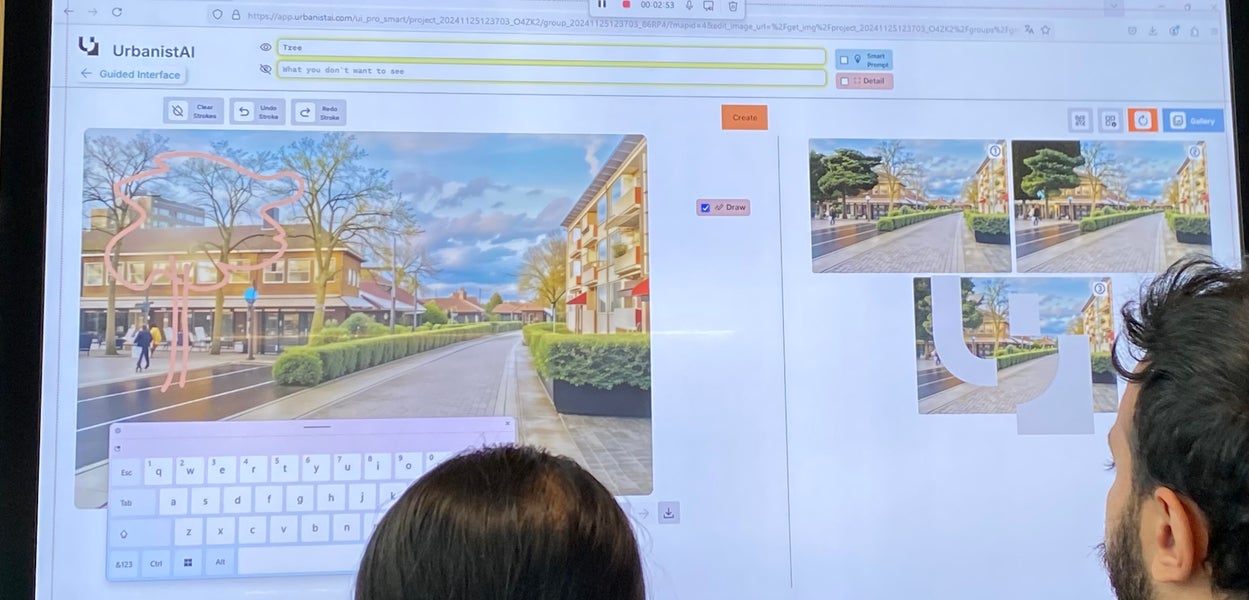A shared passion for citizen engagement and the playful Athena style

Carmen Anthonj (UT) and Bep Schrammeijer (VU Amsterdam) collaborate with citizens and the municipality of Enschede to make scientific research more accessible.
A shared passion for citizen engagement and the playful Athena style
In the project Co-Designing Climate Sensitive Blue and Green Spaces with Vulnerable Urban Populations, researchers from VU Amsterdam and the UT are working together with citizens and the municipality of Enschede to improve the wellbeing of the local community. Carmen Anthonj, Associate Professor of Water, Health and Decisions at the ITC Faculty (UT), and Bep Schrammeijer, Assistant Professor of Social-Ecological Transformation at the Athena Institute (VU Amsterdam), are leading the project. They share a passion for engaging citizens in science – and for working in the playful Athena style. "We really want to make this dialogue possible."
The collaboration is funded by the Alliance VU-UT and the Responsible Societies impact coalition.
An instant connection
"When we first got in touch, we immediately clicked. We could both instantly name several projects where we saw clear links. There was already a strong foundation to build on – we weren't starting from scratch, even though we'd never met before. We really complement each other because we think and act in a very similar way when it comes to our view of science. Both we and the teams we represent are deeply interested in the perspectives of citizens, and much less driven by research outputs or impact factors."
Giving a people a voice
"For us, it's about bringing science to citizens in a way that genuinely resonates with them and shows that science can be both fun and meaningful. We also want to reach people who aren't used to thinking about science or research, or who are usually hard to engage. Traditional participation methods often aren't enough – otherwise you end up involving the same people every time. Speaking with citizens whose voices often go unheard is very close to our hearts. It really is about giving people a voice."
Accessible, friendly and easy-going
"We use methods like co-design and participatory mapping to make sure we reach people who might not otherwise get involved. We do all this, as we call it, in the 'Athena style': accessible, friendly and easy-going – and deliberately not overly academic, because that can put people off. The Athena style is actually really cool and fun.
Our citizen engagement setups are playful and colourful, with Lego for the children and printed maps for participants to draw on. The AI tool we use forms the heart of our research and helps create images that support and inspire dialogue. It’s one of the ways we bring different parties closer together. Facilitating this dialogue is one of the main goals of our project."
Relevant and timely
"The content of our project is also socially and politically highly relevant. We’re seeing a lot of interest, including from the municipality and housing corporations. They’ve told us they sometimes struggle to get into meaningful conversations with citizens, and they’re very curious about our approach.
We hope our methods will prove useful more widely. What’s more, our project comes at exactly the right time: development and planning activities are already underway in the area we're focusing on. So policymakers find what we're doing genuinely relevant."
High risk, high gain
"For us, the project is above all about learning from each other and from our colleagues. We also enjoy the freedom to experiment and try out new ideas.
We love the high risk, high gain nature of this project: it’s not easy to get citizens and municipal representatives around the same table. Sometimes it doesn’t work out – because of conflicting schedules, or because of differences in language and perspective. But that's exactly why we’re so committed to making this dialogue happen. The next step would be a larger and longer-term follow-up project."
